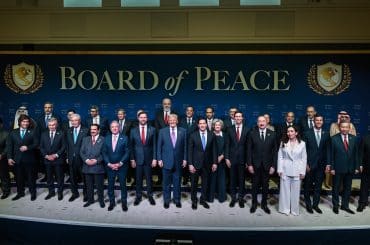
This weekend the Israeli media reported on the appearance of a new “Conscientious Objectors’ Letter” – the latest in a long line of such letters protesting the occupation of the West Bank and Gaza Strip and declaring the signatories’ refusal to participate in it. (The undersigned was a signatory of one antecedent, in 2002.) The letter, signed by fifty young people facing conscription, states that:
“Palestinians in the Occupied Territories live under Israeli rule though they did not choose to do so, and have no legal recourse to influence this regime or its decision-making processes. … human rights are violated, and acts defined under international law as war-crimes are perpetuated [including] assassinations … the construction of settlements on occupied lands, administrative detentions, torture, collective punishment and the unequal allocation of resources such as electricity and water. Any form of military service reinforces this status quo, and, therefore, in accordance with our conscience, we cannot take part in a system that perpetrates the above-mentioned acts.”
Though the occupation has deepened since the end of the Second Intifada in 2005, with settlements growing rapidly and the isolation of Gaza and the West Bank “bantustans” reaching new heights, the seeming public consensus over the necessity of continuing and “managing” the occupation has gradually pushed it off the political agenda for Israeli Jews. The letter thus represents what may be a new beginning for the conscientious objection movement and the anti-occupation movement in Israel more generally.
In its previous incarnations, the conscientious objectors’ movement has been criticized for representing only a small segment of Israeli Jewish society and of promoting a “heroic” narrative privileging the young middle-class men who have the wherewithal to undergo long periods of imprisonment. The signatories to the new letter, accompanied by two experienced activists of the 2002 generation, seem to be aware of this and are keen to highlight both their own diverse backgrounds and their solidarity with other groups fighting the draft and affected by militarism, including women and sexual minorities.
Among the outspoken signatories of the new letter are Roni Laks (20), who comes from an ultra-orthodox family in Bnei Brak, and Shaked Harari, of the working-class, mostly Mizrahi Tel Aviv suburb of Bat Yam. Some of the objectors will face jail time for their refusal, while others may receive exemptions for medical or other reasons. Moreover, the publication of the letter comes on the heels of the gigantic rally of the haredi (ultra-orthodox) community in Jerusalem, protesting the government’s plans to enforce enlistment on its men, and against the background of state attempts to encourage Christian Palestinian citizens of Israel to enlist and to otherwise distance them from their Muslim compatriots. The letter’s signatories have repeatedly declared their solidarity with these other communities, as well as with the struggle of Druze objector Omar Sa’ad.
While self-declared conscientious objectors have always been a small minority in Israel, enlistment levels are very uneven across ethnic and class lines in this self-declared “nation in uniform”. For politicians of the nationalist center, non-enlistment is at once an excuse for discrimination against women, Palestinian citizens, poor Mizrahis, haredim and others, and a pretext for their vilification as “freebooters” and never-ending campaigns for their conscription into an army that has no use for them.
Conversely, the supposedly apolitical non-compliance of these different groups with the draft may be a common ground for solidarity and resistance. While non-enlistment does not necessarily derive from a critique of the occupation, it does imply alienation from the Israeli state and a rejection of the avenues for socio-economic mobility that the army supposedly provides. The groups in which non-enlistment is high have historically maintained a distance from the anti-occupation left, but some – at least the haredim – have recently indicated a willingness to draw closer. It now seems that resistance to conscription may become a ground for joint struggle by widely varying groups. The new wave of objectors seems set on searching out that common ground.


It would be nice to have these brave moral people posting here versus the zionist immoral apologists we meet here.
The Hopnees and mehanes and gildogs et al.
Honest, decent and human versus cruel vicious inhuman cretins.
The ugly little Spartan state wouldn’t be possible without compulsory military service, so good on these young people for saying NO.
I’m reminded of a great meandering talk by Jeremy Scahill (a now-disappeared Cultures of Resistance podcast) where he quotes one of the Catonsville Nine, Father Daniel Berrigan, on the burning of their draft cards during the Vietnam War:
Our apologies, good friends, for the fracture of good order, the burning of paper instead of children…
Americans are so complicit against these courageous Israeli jewish kids. Shame on American youth, mostly.
Gaza is a Bantustan? Gaza has a border with Egypt. This is not enough to say that the Israeli withdrawal has been complete. It has not. But a Bantustan, I thought, means area surrounded by the offending country. Gaza has a border with Egypt. Occupation probably has a legal definition and the doctors of the law will tell you (and me) why Gaza is occupied. Does Bantustan have a definition or is it merely a phrase of derision without any definition?
I think the issue of the the role of the Orthodox in Israel is profound. This report from The Real News left me wondering if the Zionist experiment is falling apart.
In Historic Protest Israel’s Orthodox Break with Settler Right
http://therealnews.com/t2/index.php?option=com_content&task=view&id=31&Itemid=74&jumival=11563